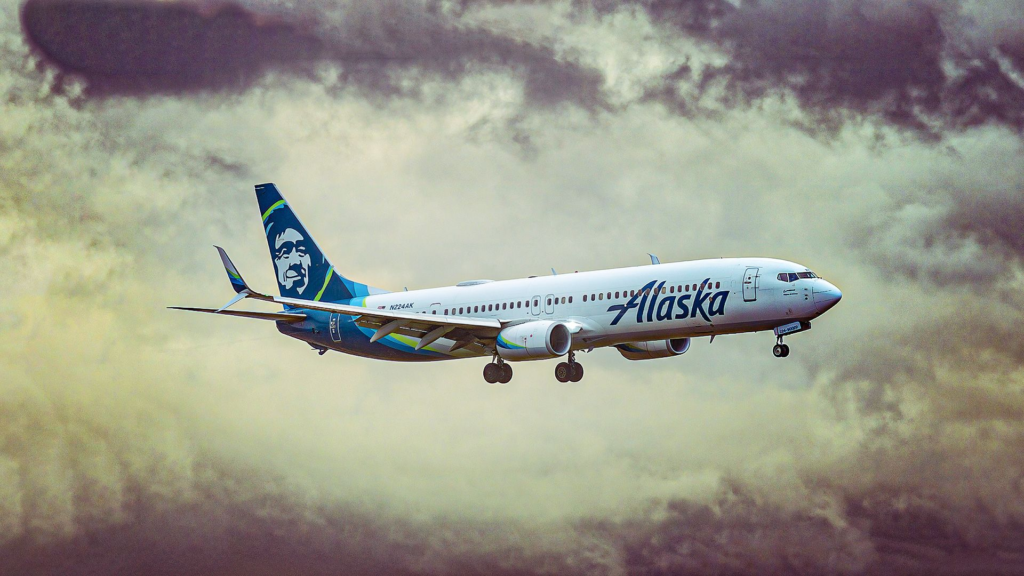On October 3, 2025, the High Court of Justice ruled against Alaska Airlines in its appeal over trademark royalties owed to the Virgin Group. The Seattle-based airline had sought to overturn an earlier decision requiring it to pay $160 million in royalties.
The court reaffirmed that
Background Of The Alaska–Virgin Royalty Case
Virgin America merged with Alaska Airlines in July 2018, thereby ceasing operations. Rights and assets were handed over to Alaska Airlines, with an initial royalty payment shy of $8 million per year that Alaska Airlines had to make for the continuous use of the Virgin brand to the Virgin Group.
After buying Virgin America and completing the merger in 2018, Alaska stopped using the Virgin branding and claimed it should not have to keep paying the minimum royalty. However, Virgin Group argued that it was entitled to receive the minimum royalty every year from 2016 through 2039, while Alaska said that this ongoing payment requirement was never clearly stated in the original agreement.
According to the court documents, Alaska Airlines argued it should be allowed to retain control of the Virgin trademarks for 25 years without payment, since it no longer uses them. But the court rejected that claim, ruling the brand still holds value by preventing competitors from using the Virgin name in the US market. It added that exclusivity is only one benefit Alaska receives, as the airline also retains the right to use the Virgin trademarks, even if it chooses not to. It appears that Alaska did not have the right to unilaterally decide when to terminate the rights licensing agreement per the original merger negotiation, which was the basis of Virgin’s case against the US carrier.
How The Virgin America Deal Happened
Previously, the airline industry was far less consolidated than it is today. After multiple waves of mergers, the United States is left with only a handful of passenger airlines today that have a major influence on the market. Indeed, in recent years, the two most important mergers to have made waves across the industry include the merger between Spirit Airlines and JetBlue, which was blocked over anti-competitive concerns, and the acquisition of Hawaiian Airlines by Alaska Airlines, which is on track to see the carriers fully join forces in 2026.
Founded by Richard Branson, the Virgin Group launched Virgin America in 2004 to enter the US domestic airline market. Over the next decade, the airline expanded rapidly, operating nearly 70 aircraft and serving more than 30 destinations across North America by 2014. That same year, Virgin America went public with an Initial Public Offering (IPO) on the NASDAQ, marking its debut as a publicly traded company.
Impressed by the airline’s success, Alaska Airlines made a bid of $44.75 per share in early 2016, sparking a bidding war that lasted several months. JetBlue later countered with a $57-per-share offer, but Alaska ultimately secured the acquisition for $2.6 billion. The deal eliminated a key competitor, allowing Alaska to strengthen its route network, improve fare competitiveness, and enhance profitability. By acquiring Virgin’s valuable airport slots, Alaska also rose to become the fifth-largest airline in the United States.
Delta Caught In Alaska–Virgin Brand Fight
As part of the Virgin trademark dispute, Delta Air Lines has become involved due to its transatlantic partnership with Virgin Atlantic.
Alaska Airlines claimed that Delta, through its 49% stake in Virgin Atlantic, is indirectly promoting Virgin-branded services on US domestic flights, particularly through Virgin Atlantic’s Flying Club loyalty program, which Alaska says infringes on its exclusive rights to the Virgin brand in the US.
Delta responded to the Atlanta Journal-Constitution (AJC) by calling Alaska’s legal actions “meritless,” emphasizing that the dispute is between Alaska and Virgin, and that Delta is not a party to the case.

